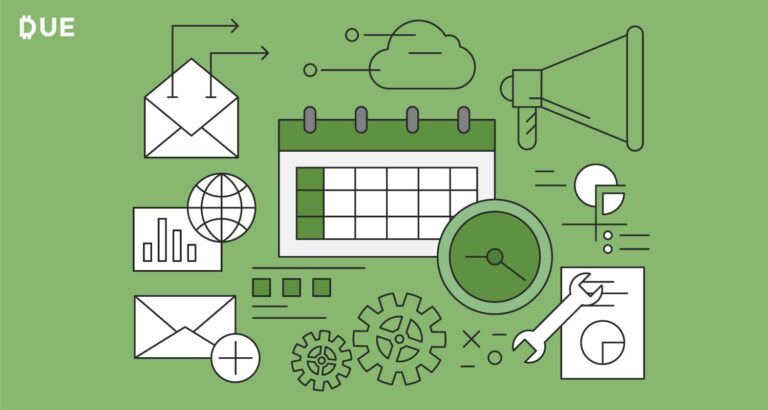In an era where smartphone ubiquity is a hallmark of modern life, unlocking the full potential of these devices extends far beyond communication and entertainment. Increasingly, consumers are harnessing the myriad of cost-saving applications designed to streamline financial management, mitigate needless expenditures, and enhance overall economic welfare. This article delves into the sophisticated ecosystem of smartphone apps that promise painless monetary savings. Through advanced algorithms, user-friendly interfaces, and innovative features, these digital tools are transforming the way individuals manage their finances. We will explore the functionalities, benefits, and real-world applications of top-rated financial apps, providing a comprehensive guide for anyone looking to bolster their financial health with minimal effort.
Analyzing the Market: Identifying Reliable Money-Saving Apps
When it comes to finding apps that effectively help you save money, the key lies in identifying those that are not only popular but also reliable. Mint is a standout choice among budgeting apps, offering features that allow users to track expenses, categorize spending, and receive personalized financial advice. Another noteworthy app is Honey, which automatically searches for and applies the best coupon codes when you’re shopping online, ensuring you never miss a deal.
Here are several features to look for when considering money-saving apps:
- User reviews and ratings: Focus on apps with consistent, high ratings and positive feedback.
- Security measures: Ensure the app uses encryption and other protective measures to safeguard your data.
- Ease of use: Look for intuitive interfaces that simplify the process of saving money.
- Comprehensive toolset: Apps that offer a wide range of features such as budgeting, coupon finding, and expense tracking.
| App Name | Key Feature |
|---|---|
| Mint | Expense Tracking |
| Honey | Coupon Codes |
| YNAB | Budget Planning |

Detailed Insights: How These Apps Automate Savings and Track Spending
Many money-saving apps leverage advanced algorithms and artificial intelligence to automate the savings process. These applications analyze your spending habits and identify opportunities to save without causing financial strain. For example, apps can round up your daily purchases to the nearest dollar and transfer the difference into a savings account. Some applications offer smart deposit schedules, ensuring that you save small amounts regularly without even noticing the funds being set aside.
In addition to automating savings, these apps also offer robust tools for tracking expenses. By syncing with your bank accounts and credit cards, they provide a comprehensive overview of your financial activities. You can categorize your spending, set budgets for specific categories, and receive alerts when you’re nearing your limits. Here’s a glimpse of what you can expect:
- Real-time spending notifications: Immediate alerts for every transaction.
- Spending analysis: Detailed charts and graphs showing where your money goes.
- Custom budgets: Set limits on different spending categories and monitor them easily.
- Bill reminders: Never miss a payment with scheduled notifications.
| Feature | Benefit |
|---|---|
| Automated Savings | Effortless money transfer to your savings account |
| Spending Insights | Analyze and improve your financial habits |
| Budget Tracking | Helps adhere to financial goals |

Recommended Apps: Which Ones Stand Out for Different Financial Goals
There are several standout apps that can help you reach various financial goals more easily. For those aiming to budget and track expenses, Mint is a popular choice. It offers features like automatic expense categorization and bill reminders. If you’re focused on emergency savings, consider Chime. It enables automatic transfers to an emergency fund with features such as round-ups on purchases.
For those looking to invest effortlessly, Acorns is a great option. This app rounds up your spare change and invests it automatically. If you’re targeting debt repayment, You Need a Budget (YNAB) provides strategies and tools that prioritize debt elimination. Below is a simple comparison of these standout apps:
| App | Best For | Main Feature |
|---|---|---|
| Mint | Budgeting | Automatic expense categorization |
| Chime | Emergency Savings | Round-ups for savings |
| Acorns | Investing | Investment of spare change |
| YNAB | Debt Repayment | Debt prioritization strategies |

Actionable Strategies: Implementing These Tools for Maximum Savings
- Set Budget Alerts: Many of the top money-saving apps allow you to set and customize budget alerts. With just a few taps, you can define monthly limits for different spending categories like groceries, dining out, and entertainment. These alerts notify you when you’re nearing or exceeding your budget, helping you make smarter spending decisions in real-time.
- Utilize Cashback Offers: Cashback features are a must-use tool within these apps. Activate the cashback offers before shopping to earn money back on purchases you’d be making anyway. The cashback accumulates over time, allowing you to save money effortlessly. Popular apps like Rakuten and Ibotta specialize in easy cashback opportunities at a variety of stores.
| App | Key Feature | Potential Savings |
|---|---|---|
| Mint | Budget Tracking | Up to 15% on monthly expenses |
| Rakuten | Cashback on purchases | 5-20% per transaction |
Q&A
Q: What is the main focus of the article?
A: The primary focus of the article is on smartphone applications designed to help users save money effortlessly. It highlights various apps that provide tools and features aimed at making financial management and savings more streamlined and painless.
Q: Why are smartphone apps becoming a popular tool for saving money?
A: Smartphone apps are gaining popularity as money-saving tools due to their accessibility, ease of use, and advanced features. They offer automated savings options, expense tracking, budgeting tools, and personalized recommendations, which simplify the process of managing finances.
Q: Can you name a few apps mentioned in the article that help with saving money?
A: The article mentions several apps, including:
- Acorns - An app that automates investment by rounding up everyday purchases to the nearest dollar and investing the spare change.
- Digit – This app analyzes users’ income and spending patterns to automate savings in small, manageable amounts.
- Qapital – A goal-oriented savings app that allows users to set specific savings goals and rules to trigger savings automatically.
Q: How does Acorns work to help users save money?
A: Acorns works by linking to users’ bank accounts and credit cards to track purchases. It rounds up the total of each transaction to the nearest dollar and invests the difference into diversified portfolios. This micro-investing technique helps users build savings passively without significant impact on their daily spending.
Q: What unique feature does Digit offer to facilitate savings?
A: Digit employs an algorithm that analyzes users’ spending habits, income, and account balances to determine small amounts of money that can be safely transferred to savings. This feature allows users to save incrementally without feeling the financial strain.
Q: What is the primary benefit of using Qapital for saving money?
A: The primary benefit of using Qapital is its customizable rule-based system. Users can create personalized rules, such as rounding up purchases or saving a specific amount when they meet fitness goals, to automatically transfer money towards their savings objectives. This gamified approach makes saving more engaging and goal-oriented.
Q: Are there any security concerns related to using these apps?
A: The article acknowledges security concerns and advises users to choose apps that use encryption and other security measures to protect personal information. It emphasizes the importance of researching each app’s security protocols and reading user reviews to ensure data safety.
Q: Beyond individual savings, do these apps offer other financial management features?
A: Yes, many of these apps provide comprehensive financial management tools. Features may include budget tracking, spending analysis, investment advice, and financial goal setting. These additional tools help users gain a holistic view of their finances, allowing for more informed financial decisions.
Q: What overall impact do these apps have on users’ financial habits?
A: According to the article, these apps have a positive impact by promoting mindful spending, encouraging regular saving, and helping users set and achieve financial goals. This combination leads to improved financial literacy and healthier money management practices over time.
Q: What advice does the article offer for selecting the right app?
A: The article suggests considering users’ specific financial needs, goals, and behaviors when choosing an app. It recommends looking for features that align with personal preferences, such as automated savings, customizable goals, or integrated financial planning tools. Additionally, users should check app reviews, security measures, and any associated fees.
To Wrap It Up
smartphone applications designed to help users save money effortlessly are becoming an indispensable tool in today’s financial landscape. Leveraging sophisticated algorithms and user-friendly interfaces, these apps streamline budgeting, automate savings, and provide insightful financial advice. By integrating seamlessly into daily routines, they not only reinforce positive financial habits but also allow individuals to achieve their economic goals with minimal exertion. As technology continues to evolve, the suite of available applications will undoubtedly expand, offering even more innovative solutions to enhance financial well-being. Staying informed about these tools and adopting them judiciously can lead to significant, long-term financial benefits. Therefore, the integration of these applications could be a transformative step towards a more financially stable future.


